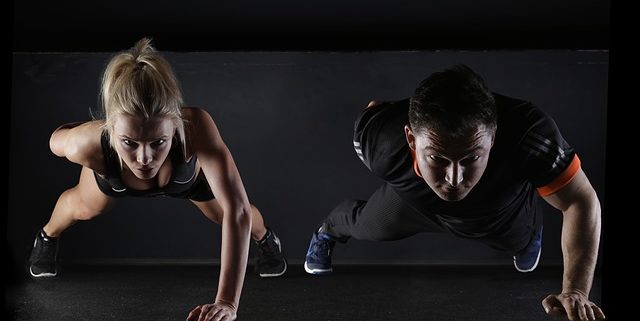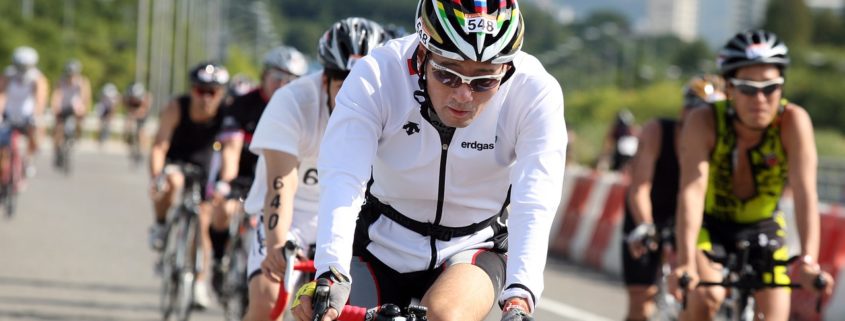Be Proactive, Not Reactive
“Change Coach” Nancy: In your book, Fit Soul, Fit Body, you discuss tips for becoming fit—physically and spiritually. What did the two of you learn as you wrote this book? Were there areas in your life where you were “out of balance”?
Secunda/Allen: One misconception that people may have about authors of books that are designed to help people better their lives is that that the authors themselves have come to some point of freedom where nothing is a challenge for them anymore, where they have things all together and they never have to rise up above their own humanness, that indeed they are completely in balance every step of the way.
But this is just not the case. As we say in our book, life is not a blissed-out experience all the time. Certainly, if we or anyone uses the tools in our book, those great moments where everything does feel in balance will come more often and last longer, but this is not a permanent state. It is one that we have the chance and the necessity to nurture and foster each and every day.
One of the biggest changes that happens over time for us as the authors and for others who apply the keys to our book to their own lives is that we become more adept at catching the imbalances and correcting them quicker. The Huichol Indians are a model for this in the way they approach their ceremonies and their lives. They say it is always better to stay in balance as much as possible rather than let things get out of balance before we act. For instance, they do their ceremonies to bring the rains before a drought happens.
We can think of that as a focus for our own lives—take care of ourselves daily with the small steps before a personal “drought” happens and we need to take drastic measures to bring our body and soul back into a healthy state. These are all tools of holistic health.
“Change Coach” Nancy: Can you share some practical tips that can help us break through blocks to become more confident, more courageous and more authentic?
Secunda/Allen: Confidence is often something we feel when things are going well, but that we feel we lack when things are not. So the key is to be able to tap into confidence or trust in our life and our abilities when we are in those tougher moments. Here are some tips:
- Embrace the challenges. Challenges make us smarter and better. Think of a high-jumper who jumps higher the more he practices the skill, and keeps jumping higher every time the bar is raised. Embracing challenge starts by acknowledging that life is not going to always be smooth sailing. In fact, there is a saying that says “smooth sailing does not make a good sailor.” So in the tougher moments when you may be lacking a sense of self-confidence, remind yourself that challenge is just part of life, even if what you are facing does not seem like anything you signed up for!
- Accept uncertainty. Tell yourself it’s okay to not know how you’ll get yourself out of a situation that is causing you to doubt your own abilities. It’s okay to not have a clear vision of what will take you to the final step to bring about a change you need. Often just acknowledging that it’s okay in the moment to not be clear about what your next step will be will bring a feeling of confidence that at some point the answers will come. Think of a task at work that, at the time, seemed insurmountable. You probably didn’t know how you’d solve it. But you did. Not because you had a well-mapped course of action, but because at some point you knuckled down and worked at it, and the answers came to you.
- Quiet your mind. This is a tool that help you find answers to vexing problems, in spite of your fears. Often, coming up with the big solutions is not a logical, methodical process. Those answers may only come when we stop the thinking process, stop the thoughts in our head that may be worried about not having enough self-confidence in our abilities to find a clear solution.
One way to quiet your mind is to go for a walk outside and just observe the world of nature going on around you, to feel the earth beneath your feet, the air on your cheeks giving you life. Imagine the light of the sun filling your body with brightness from the inside out. Just doing this can wash away fear and bring back self-confidence. It will also remind you of who you really are beyond any worries you have. People gain a sense of authenticity, of what their purpose is and what their authentic self is about when they are in a natural setting because, as the Huichols say, we are a reflection of nature.
John F. Kennedy used to marvel at how the earth is about 65% water and so are our bodies. The oceans are saltwater and so is the blood moving through our bodies. We are indeed a reflection of nature and also connected to the power that is there. Feeling the life force that is in every plant, every animal in the earth itself is something that brings us courage to have a good life, to tackle the problems that we may be facing and to help us regain a peace inside, which is also another form of self-confidence.
“Change Coach” Nancy: What message do you want to share with people about overcoming fear and finding balance in life?
Secunda/Allen: The first message is about fear. It is okay to have fear, we all have it at times in our lives. What is important for overcoming fear is to create a vision of what might lie on the other side of fear if we are able to walk through it.
Often with fear the only thing a person can see is the fear of what might go wrong, of what is holding them back, and their life contracts. So to overcome fear, step one is to do as we have mentioned, which is to stand back for a few moments and see clearly what can give your life purpose without worrying about any stumbling blocks that might hold you back. See your life with outcomes that you know are possible without fear being a block. Really feel these visions for your life, see some of the key steps you will take to get there, then go out and take them one at a time.
Any time you feel fear creep in, remind yourself that you can go forward even with the fear, that it does not have to hold you back. And once you take that step even with a fear or doubt, look back and acknowledge yourself for having the courage to move forward regardless of how small or insignificant that step may seem and certainly regardless of maybe how silly the fear might seem. Of course, if it is a big lifetime fear, give yourself a bigger pat on the back for doing what was important to get one step closer to the vision or dream you set out to live.
The second message has to do with balance. Balance is not something that is necessarily going to be possible if viewed moment to moment. For example, athletes will train long hard hours to gain the fitness they need to become champions. Those tough training sessions are not balanced, as they tax the body tremendously. But then they will rest, often in a super-compensated way to put back all the vital energy expended in their training so that they are ready and fresh for their competitions.
Neither of these states is exactly what we would call balanced if we took a snapshot of either—an athlete pushing their bodies or that same person lying around like a slug to regenerate. But over time, the sum total is a true balance. Most people have yearly cycles where some seasons are more introspective with less work or demand and other seasons where the demands can be extreme. But hopefully over the year those two will balance each other, and that is the biggest message for this attribute—to seek balance in your life over time, even if in a moment-to-moment analysis things might look out of balance.
That is the way the seasons in nature work, isn’t it? In the northern states, we get extreme cold, rain, and snow for a few months and everything sleeps in the short days of winter. But then by spring and summer everything is blooming and the rains stop, allowing the plants to thrive and soak up the sunlight of summer. Both of these extremes are necessary, but are only considered balanced if looked at over the course of a year. And we as humans can strive to model our lives after this incredibly balanced model that exists around each of us year after year.
~~~~~
Thanks so much to both Brant Secunda and Mark Allen for sharing their wisdom! And I invite all my Change Buddies to share their stories of fear — what has held them back from doing what they most wanted to and how they overcame it! And stop back at the Make A Change blog each Sunday for more tools and tips on making a change!
Reposted from communityofchange.blogspot.com




